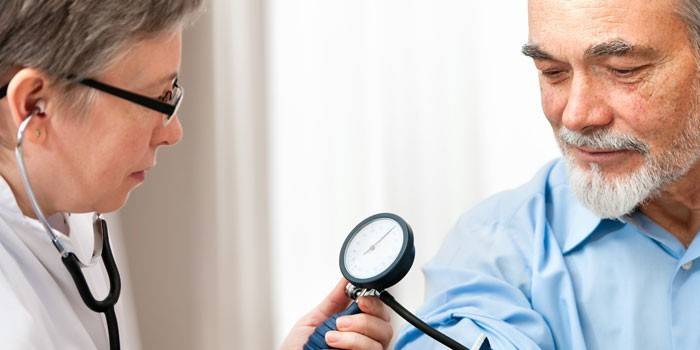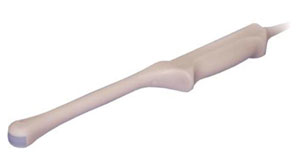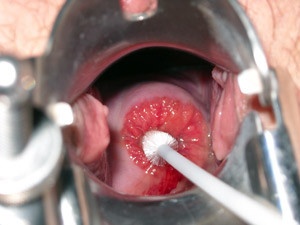Overview
A visit to the doctor is always a stressful situation for each of us, regardless of age and social status. Indeed, to the discomfort caused directly by the disease, unrest is added due to the unpredictable outcome of the consultation.
Often a person who seeks medical help will be disappointed or frustrated - but not because of the doctor’s poor work, but because of his own mistakes. For example, when it turns out that you forgot to bring the results of previous surveys with you. Or confused during the examination and could not accurately describe their symptoms. Or, in the end, because already on the way home they finally formulated a question that they wanted to ask the doctor about the disease or its treatment methods.
Let's try to figure out how to prepare for a visit to the doctor to avoid such situations.
Preparing for a doctor's visit
Your first step will be to choose a specialist and medical institution. Before visiting a doctor, you must call the registry and make an appointment. Check if there are any requirements for a visit to a specific specialist - what you need to take with you and how to prepare. For example, is it possible to eat and drink before an examination or passing tests, is it necessary to bring any documents to the hospital.
Many people themselves try to find in advance all the information about their symptoms and a possible diagnosis on the Internet. This information can be very useful, as it will more accurately describe your own complaints and prepare the right questions, which is especially true in difficult situations.
If you already know your diagnosis and go to the doctor in connection with an exacerbation of the disease, or decide to change the specialist, the medical literature will help you learn about new approaches to diagnosing your disease, as well as formulate all the necessary questions and suggestions for treatment measures. Feel free to write them in a notebook, so as not to forget while visiting a doctor.
By the way, it will not be amiss to think over the sequence of your story in advance. Even before the visit, remember all the details of your disease - when you first felt the symptoms, how they developed, how often they bother you at the moment.
Conversation and inspection
And so, you are in the doctor’s office. In detail, but without excessive emotionality, tell him the essence of your problem. Be sure to mention if you have already sought medical help for a similar reason, tell me what examinations took place (even if they were done a long time ago, the results should be taken with you), what treatment was prescribed for you, whether all the recommendations of the previous specialist were followed, whether the therapy helped.
Be prepared for unexpected questions - the doctor may ask you to talk about illnesses you suffered in childhood, the health status of your parents or immediate family, or, for example, your habits. So, a specialist may ask you:
- at what time of the day do you have symptoms of the disease (for example, do swelling of the legs appear in the evening or does it not depend on the time of day),
- is there any triggering factor that affects the development of symptoms (for example, when you have an asthma attack by inhaling cold air or after contact with pungent odors),
- whether the appearance of a symptom is associated with food intake, physical activity, psychological stress, etc.
- how far you can go without shortness of breath
- if you have pain - what is their nature (aching, burning, stitching, pressing, etc.),
- what infectious diseases did you have as a child, what vaccines did you have,
- have you had injuries or surgery
- what date the last menstruation began (for women),
- do you have intolerance to any products
- are there occupational hazards (such as night work or working with chemicals)
- if you have already been treated before for this disease - why did you decide to change the doctor.
Of course, it will not be possible to prepare answers to all possible questions in advance, but assuming the specifics of your disease, you can probably quickly find your bearings if you still read materials about a particular pathology at home.
Feel free to mention any embarrassing, in your opinion, details of the disease, they can play a decisive role in the diagnosis or make the doctor think about another disease. This is especially true in the presence of disorders in the sexual sphere, the physiological needs and the characteristics of your behavior (for example, the appearance of aggressiveness, frequent mood changes, etc.).
Diagnosis and appointments
When the doctor makes a preliminary or final diagnosis and describes the proposed plan for further examinations or treatment, remember all the questions that will arise during your explanations and ask them at the end so as not to confuse the doctor with thoughts. Perhaps by this time you will have time to get some of the answers.
Ask a specialist about the availability of alternative methods (for example, about the possibility of avoiding surgery or about other approaches to medicine adopted in foreign clinics). Even if they do not suit you, you will be able to understand the reasons for the doctor choosing a specific treatment regimen, and you will also be informed about the possibility of changing, if necessary, treatment tactics.
Quite often, medications prescribed by a doctor are not cheap. There is nothing wrong with asking a doctor about the possibility of buying cheaper analogues of prescribed drugs, as well as clarifying which of the drugs is of paramount importance and which are auxiliary in the treatment of your disease. Unlike consultants in a pharmacy, a doctor will be able to correctly explain to you the advantages and disadvantages of certain medicines so that you think about the situation and make an informed decision in accordance with your financial capabilities.
Try to calmly respond to a doctor’s suggestion of hospitalization (this happens, sometimes quite unexpectedly). It may also be required even in cases when you generally feel satisfactory (for example, during pregnancy, the doctor may insist on emergency hospitalization based on the results of blood tests). Find out how urgently you need to go to the hospital and whether it is possible to return home before that.
Before leaving
If the doctor of a private clinic offers you to take any tests immediately after the end of the consultation, undergo additional examinations, or recommend that you purchase medicines in a specific pharmacy in the near future, find out if you can postpone the solution to this issue, for example, until tomorrow. So you will have the opportunity to study the offers of other private laboratories, clinics or pharmacies.
If there is no doubt about the validity of the appointment, be prepared for the fact that you will have to spend some more time and, possibly, money (take with you to the hospital just in case about a few times larger amount than indicated in the price list) passing tests or passing diagnostic procedures.
Find out if there are any restrictions related to your illness or the prescribed treatment - for example, is exercise or sexual contact permissible, can you drink alcohol or drink medications that are not related to the illness (for example, sleeping pills or birth control tablets).
Do not forget to ask the doctor how soon after the start of treatment you should feel better, when to make an appointment and if there may be any situations (for example, an unusual reaction to taking medications) when you need to immediately seek medical help
Some doctors, mainly those working in private clinics, sometimes give their patients the opportunity to call them on their personal phone if questions arise during treatment. Be sure to ask your doctor if it is possible to do this in your case, and if he permits, find out what time of day it is better to call.
Another important aspect of the relationship between the doctor and the patient in our country, unfortunately, is the question of the possible remuneration of the doctor, and simply the question of bribes. It is impossible to predict what kind of situation you will encounter, however, try to decide in advance the question of your attitude to such thanks.
Remember that in the event that a medical worker insistently hints at the need for additional payment for his services, and you do not agree with his requirements, you always have the opportunity to go to another specialist, or even complain about such actions to the higher management of the medical institution.
Some important nuances
- An important aspect of preparing for a meeting with a doctor is personal hygiene. Regardless of the nature of the disease, be sure to take a hygienic shower before the examination (if this is not contraindicated), put on clean linen and socks. Remember that this will facilitate the work of the doctor during the examination.
- Immediately before the visit to the doctor, study the map of the area where the medical institution you need is located. If you are a car owner, study the access routes to it; if you use public transport, orient yourself in the location of the nearest stops.
- If your condition is generally satisfactory, then you should take a small book with you to the hospital - if the office you need has a queue, it will distract you from worries and irritation due to the waste of time.
- If you were unable to have breakfast before your visit to the doctor, be sure to bring along juice, a small chocolate bar or a package of nuts to have a bite to eat right after the consultation.
- Before leaving, do not forget to thank the specialist and the nurse who helped with the consultation - even a few sincere kind words said at parting will improve the mood for both doctors and yourself.
All materials on the site were checked by doctors. However, even the most reliable article does not allow to take into account all the features of the disease in a particular person. Therefore, the information posted on our website cannot replace a visit to a doctor, but only supplements it. Articles are prepared for informational purposes and are advisory in nature. If symptoms occur, please consult your doctor.
passed as successfully as possible, you need to know and follow simple but very important rules.
Eat Before Reception
First, going to the reception be sure to eat! Depending on the time of day, it can be breakfast, lunch or dinner, but solid and full. Even if you are usually not used to, for example, having breakfast, make an exception before visiting the dentist.
Why is this important? After eating, the human gastrointestinal tract produces a minimum of saliva, which is very helpful in treatment or surgery. In addition, a well-fed patient feels much calmer and less worried.
Most patients or afraid dentist, or very worried during the appointment. At this point, the body produces hormones stress, which in turn requires enhanced metabolism, during which, in particular, the composition of the blood changes. " Full»The body has a peculiar stock, which begins to be spent, and " hungry"- experiencing disadvantage vital substances. The consequence of such a deficit could be fainting, collapse and others dangerous conditions.
Cure Colds
The second important condition. Any viral disease cold, temperature, cough, runny nose - all this incompatible with treatment at the dentist. Taking medication can relieve symptoms, but not the disease. These conditions always reduce immunity, which means that the body will have less power to recover from a dental intervention. Viruses and microorganisms, in turn, intensively begin to multiply when other diseases, including dental ones, join. Among other things, a sick patient is likely to infect a doctor, medical staff and other patients.

If you are not sick, but feel malaise, chillsother unusual for yourself symptoms - it is better carry over going to the doctor the next day. It is possible that you are already sick, although your well-being is still not so critical. Doctors call this condition prodrome, it precedes a period of vivid manifestations of the disease. Theoretically, you can remove a tooth, treat tooth decay and even put an implant, and in the evening, or the next day, the disease ( flu, ARVI, cold) will manifest in full force. In this situation, the underlying disease will be more difficult, and the prognosis of dental treatment will be worse, and in the case of implantation, it may result in rejection of the implant.
Get rid of cold sores
Herpes virus - often, in addition to a pair of bubbles on the lip, it may not have other manifestations, but this is only an external impression. Herpes is highly contagious and spreads very quickly. After dental treatment, the manifestations of herpes can be much harder and more serious than before the intervention.

Control pressure
High pressure necessarily requires control: almost all anesthetics used in increase blood pressure even more; treatment, surgery, and tooth extraction cannot be performed. If you suffer from hypertension, then such a treatment is planned in advance, always in the morningwhen blood pressure is lower, hypotensive agents must first be used.
Notify your doctor about drug allergies
Allergy - one of the frequent and dangerous conditions. If you have ever had an allergic reaction after treatment, medication, anesthesia, BE SURE TO WRITE A NAME drug or substance that caused the reaction. Always tell your doctor about this before treatment, indicate all the facts and manifestations.
Do not treat teeth after vaccination (do not vaccinate after dental treatment)
Vaccinations - Also incompatible with treatment by a dentist. Moreover, both before and after. If you have been vaccinated, you should not plan a dental intervention in the next 3-4 weeks. Otherwise, you will subject your body to a double blow. Treatment before vaccination is possible, but it is also better to divide these two events into one and a half to two months.

The prices shown in the text are approximate and may differ from the actual prices. Current prices for dentistry services "Our dentist" are in the section
Often before first visit to a psychologist doubts arise. It happens that it’s hard for us to determine if the psychologist’s office will be a good place to deal with the problem. However, it is worth using the services of a professional if the hardship methods used so far have not brought the expected results.
When to go to a meeting with a psychologist
Starting a collaboration with a psychologist can be a good option if you have the impression that you are unable to cope with experienced situations and feelings. It happens that the closest people cannot be sufficient support, and previous methods do not bring relief or are a source of further complications.
If, as a result of your own observations or suggestions of someone close, you decide to use the support of a specialist, it is worth taking care of a few more details.
How to find a competent psychologist
It is necessary to check who exactly is the specialist whom we plan to contact. The fundamental difference in the types of support and the volume of services provided depends on who you turn to - a psychologist, psychotherapist, coach or psychoanalyst.
Each of these specialists provides completely different services, so it’s worthwhile to decide in advance whom we want to meet. Before choosing a specific person to whom you plan to entrust your difficulties or personal development, it is worth checking his education and authority as a specialist. In order to become an expert in the field of personality development and other psychological services, you need to invest a lot of effort and time, get an education and experience (confirmed by diplomas and certificates).
The specialist should not feel offended if the client asks him to show permissions or certificates, because they got him hard work. Therefore, probably, he will show them with pleasure and even boasts. Verification of this kind is the most effective way to protect yourself from scammers or pseudo-specialists.
Fears of a first visit to a psychologist
The decision to visit a psychologist often also accompanies fear of a negative reaction from others. Despite the fact that an increasing part of the population uses services in the field of personal development or psychological support, many people still think of psychologists as outdated stereotypes.
What to expect after the first visit to a psychologist
If the specialist has already been selected and tested, then you can think about the first visit. It is worth thinking about your expectations regarding this meeting, but even if it’s hard for you to name a specific problem yourself, and the only thing that bothers you is the feeling that something in everyday life is not right or annoying. This is enough to decide to apply for support. Work with a specialist may be dedicated to finding the cause of discomfort.
First meeting with a specialist usually a preparation for future visits. You should not expect impressive results from her. This is the time when the psychologist can get to know the client, collect the necessary information, offer a work plan. It is also time to draw up a “contract”, that is, the principles of interaction between the client and the specialist. He usually determines how often and for how long meetings will take place. The frequency depends on what the client needs and the type of service that he chooses (counseling, crisis support, therapy).
It is also worth keeping in mind that such a “zero” meeting gives you the opportunity to get to know a specialist and check how you feel next to this person. During this meeting, the psychologist will probably only listen, sometimes asking questions. Some clients leave the first meeting with a feeling of disappointment. One often hears: “Nothing special happened at this meeting, because I always spoke / said.”
Areas of work of a psychologist
- A prolonged feeling of sadness, irritability, ease of anger and lack of skills to deal with it
- Problems in maintaining mutually beneficial relationships with loved ones
- Chronic stress, persistent stress and anxiety
- A prolonged feeling of sadness leading to the rejection of everyday activities
- Intermittent sleep difficulties, nightmares, insomnia, etc.
- Support in a crisis situation: death or illness of a loved one, divorce, job loss, experience of violence or participation in an accident, etc.
- Work on memories of difficult situations, mutual insults, etc.
- Hunger problems
- It is difficult to diagnose health problems (psychosomatic symptoms), for example, chronic or frequent headaches, digestive problems, as well as reduced resistance to infections, etc.
Can I trust a psychologist
A psychologist following the rules of the code of ethics should provide the conditions for building trust. This means, for example, that the psychologist should not disclose the diagnosis until the patient has given consent. A complete list of the rules of work of a psychologist or psychotherapist is available on industry sites, I urge you to familiarize yourself with them before your first visit.
Customer openness has a huge impact on work efficiency. The more sincerity in a conversation with a psychologist, the more adequate support from a psychologist.
Sometimes it happens that the client has a feeling that the problem that he came with is too minor, and, in fact, he himself must deal with it, instead of distracting the specialist. The truth is that there are no too minor issues. If something negatively affects everyday life, well-being or relationships between people, then there are all prerequisites to decide on a specialist consultation.
The consequences of the first consultation may vary. For a certain group of people, such informational meetings are not associated with any results, while others may feel relief, anxiety, sadness, etc. After the meeting, you may get the impression that not everything was said. This kind of feeling of dissatisfaction will help communicate with the psychologist during subsequent meetings. Therefore, it is worth giving yourself time. Changes or expected results, like home repairs, take time, patience, and work.
For some reason, there is an opinion in society that all the problems associated with the rectum, anus are shameful. This is fundamentally wrong! There is nothing shameful in the diseases of this part of the body. Ailments of the anus violate the quality of human life - these are problems with bowel movements, pain, and so on. And for the first time, patients go to the doctor when it is already impossible to endure. Who is a proctologist, and what diseases are included in his area of \u200b\u200bresponsibility? How to prepare for an appointment with a doctor?
A visit to a proctologist does not carry anything shameful!
Proctology is a field of medicine that studies and treats diseases of the large intestine and pararectal region. The proctologist is responsible for the following diseases:
At the reception, the doctor will diagnose, determine the stage of the disease and give appropriate recommendations. Be sure and immediately consult a doctor if the following symptoms occur:
- Defecation Disorder - Constipation
- Blood, pus or
How is the proctological examination?
No matter how ashamed and sickening it is at heart, but in the doctor’s office you will have to go through a number of procedures. It is important to understand that it does not seek to give you unpleasant sensations or moral suffering! It is important for the doctor to carefully examine the patient and make the correct diagnosis. What happens in the office of the proctologist:
- Visual inspection of the anus and adjacent area. This will assess the severity of hemorrhoids, fistulous passage, the degree of prolapse of the intestine or condition of the anal fissure.
- Finger examination - this stage will have to be tolerated! The doctor will treat the edges of the anus and hands with a special anesthetic. This will alleviate the discomfort. This study will assess the condition of the muscles of the anus, detect neoplasms, assess the condition of internal hemorrhoidal nodes. In addition, a digital examination allows you to identify contraindications for endoscopic examination of the rectum.
- - an endoscopic procedure that allows you to assess the condition of the inner walls of the rectum at a distance of 10 cm. During the procedure, a smear is taken, a biopsy is performed if necessary. Anoscopy allows for therapeutic manipulations - coagulation of hemorrhoids, the introduction of drugs.
How to prepare for a visit to a proctologist?

A proctologist is before a doctor, who should not be shy
Any trip to the doctor requires compliance with the rules of preparation for the visit. Even when planning a trip to the therapist - to measure the pressure - you need to at least brush your teeth and comb. Visiting narrow specialists requires a more thorough approach. Before you come to the appointment with a proctologist, you will have to clear the intestines of the contents. This is done in two ways:
- Mechanical bowel lavage with an enema
- Using special
If the patient is tormented by severe pain, then cleaning the intestines yourself is better not to carry out. The doctor will conduct a primary and manual rectal examination, prescribe painkillers and anti-inflammatory drugs. After the pain syndrome is removed, the proctologist will conduct the necessary instrumental examination.
Enema. Procedure
The bowel cleansing procedure is performed 3-4 hours before the expected visit to the doctor. The patient will have to do 2 cleansing enemas. The break between the procedures is 45 minutes. The water temperature should be pleasantly warm - 36–37 degrees. If you go to the morning reception, then it is advisable to carry out cleansing procedures before bedtime. If the appointment is scheduled for the evening, then an enema can be done after the morning toilet.
So, devices and materials:
- Exmarch's mug - a container resembling a heating pad with a hose, a tip and a clip
- Warm water
- Oilcloth so as not to stain the trestle bed or bed
The volume of the Exmarch mug is from 1.5 to 2 liters. The tip on the hose may be glass or plastic about 10 cm long. The latter is more preferable. If you have a device with a glass tube, then be sure to check it - there should be no chips or sharp edges. Wash the tip thoroughly with soap before the procedure.
Check the clamp on the hose. It doesn’t matter if this part is broken or lost! It is easy to replace with a regular clothespin. All is ready! We begin to cleanse the body:
- Lie on your left side, bend your legs
- Exmarch mug to a height of 1-1.5 m
- Bleed the hose and nozzle
- Lubricate the tip with Vaseline or any liquid neutral oil
- Spread the buttocks and gently rotate the tip into the rectum and open the clamp
- Within 5-10 minutes, the entire contents of the Exmarch mug will enter the intestine.
- During the procedure, pain due to stretching of the intestinal wall is possible
- Quickly move to the toilet and enjoy the process of cleaning the body
- After 40 minutes, repeat the procedure
- If this method for some reason does not fit, then you can conduct an enema in the knee-elbow position.
Laxatives in preparation for a visit to the doctor

To visit a proctologist you need to properly prepare
If a democratic enema is impossible for some reason or the patient does not like the procedure, then you can turn to laxatives. Doctors recommend using either Mikrolaks microclysters or sachets
How to use Microlax?
The drug is a white viscous capsule. The composition of the product is sodium citrate, sodium lauryl sulfoacetate and sorbitol. The volume of one tube is 5 ml. Microlax is a combination drug. Its action is based on softening feces and increasing the volume of fluid in the intestine. The body cleansing process will begin in 15 minutes.
The drug is approved for use in children under 1 year of age and older, pregnant and lactating women. There is only one contraindication for this drug - individual intolerance to Microlax. How to introduce the drug? Everything is simple:
- Open the tube
- Squeeze a drop of the product onto the tip
- Introduce the tube tip to the full length (for babies up to 1 year of age, the tip is introduced halfway)
- Enter the drug and remove the tip
- After 15 minutes we enjoy the bowel movement
- The Microlax cleaning procedure should be carried out 3 hours before the appointment with a proctologist.
The drug "Fortrans"

The disease is easier to prevent than to cure!
This medicine is used orally. That is, you drink a laxative solution and don’t need to torment your butt with an enema. Conveniently? Yes, but expensive, tasteless and long. And also there are a number of contraindications! The main active substance in the preparation - macrogol 4000 - has an osmotic effect. The package contains 4 sachets for the preparation of the solution. But in pharmacies, bags are sold individually. So for a patient weighing up to 80 kg, it is enough to purchase 2 sachets, if more than 80 kg, then you will have to drink 3 packets of laxative.
Each bag should be dissolved in 1 liter of water. So, if the patient weighs 100 kg, then you will have to take 3 liters of solution. Preparation for the visit begins in 12 hours. That is, if the plans include morning reception, then you need to start drinking the solution in the evening of the previous day. Every 15 minutes you should drink 1 glass of solution. Thus, 2 liters of Fortrans will have to drink 2 hours, 3 liters - 3 hours. After 1 hour, body cleansing begins and ends 2 hours after the last serving. Contraindications to the reception of "Fortrans":
- Severe condition of the patient
- Intestinal obstruction or suspicion of this condition
- rectum of any etiology
- Inflammatory processes on the mucosa of the rectum and intestines as a whole
- Under 15 years old
- Pregnancy is a relative contraindication. The question of taking this drug is decided by the attending physician
- Individual intolerance to the components of the drug
- Kidney disease
Attention! Do not stretch the procedure! It is supposed to drink 2 packets in 2 hours - which means that you need to do it! And not 1 sows in the evening, but 2 in the morning! The expected effect will not be achieved.
The opposite effect may even occur. Water will not leave the intestines, but it will not be absorbed and absorbed due to the drug dissolved in it. And the intestines will not be cleaned, and there will be a full belly of water.
Diet before visiting a proctologist
Doctors do not impose any restrictions on the patient’s diet. It is recommended not to eat peas, beans, cabbage in any form - everything that causes increased gas formation. The day before the visit, it is advisable to eat light, dietary food. There is no restriction on drinks, but it is advisable not to use juices with pulp. On the eve of the visit, a light breakfast is shown if the appointment is in the morning. At any other time - 1.5 hours before the visit to the doctor.
In any case, decide how to cleanse the intestines for you and your doctor. - cheap and cheerful, but unpleasant. But going to the toilet after an enema is a one-time thing! Bowel cleansing drugs are expensive, possibly tasteless and unpleasant. Yes, and the process is long, and in the case of Fortrans there is an additional burden on the kidneys and the whole body.
How to prepare for the examination by a proctologist, the doctor will tell in the video:
Tell your friends! Share this article with your friends on your favorite social network using the social buttons. Thanks!
Telegram
Together with this article they read:
-
 Proctologist: what he does, what diseases he treats and how ...
Proctologist: what he does, what diseases he treats and how ... -

-









